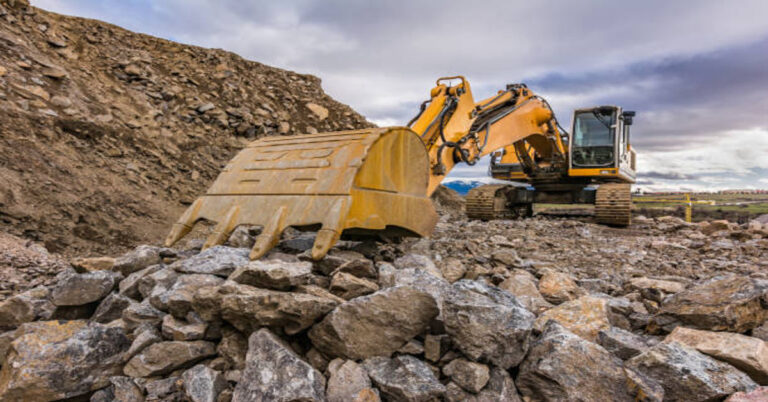
The concept of increa—derived from the idea of increase, growth, and improvement—is central to human progress. Whether it is an individual striving for self-improvement, a business aiming to enhance productivity, a farmer looking to boost yield, or a government seeking to grow national income, the principle of “increa” guides all forms of development. To increa means not only to expand in numbers but also to improve in quality, efficiency, and sustainability.
This article will provide a comprehensive exploration of in-crea across different aspects of life: economics, business, health, education, environment, and personal development. It will also discuss strategies, challenges, and examples that demonstrate how the concept of in-crea applies universally.
Historical Perspective of Increa
Growth in Human Civilization
Since the dawn of civilization, humans have constantly sought in-crea—whether in terms of population, food production, trade, or knowledge. Agricultural revolutions enabled people to in-crea their food supplies, leading to the establishment of stable societies. The industrial revolution marked a phase of massive in-crea in production, while the digital era has seen in-crea in knowledge, communication, and efficiency.
Cultural Understanding of Growth
Different cultures view in-crea differently. In Eastern philosophy, in-crea often means inner growth and harmony, while Western models emphasize material and economic expansion. Both, however, agree that in-crea is essential for survival and progress.
Increa in Economics
National Economic Growth
In economics, in-crea refers to the expansion of a country’s Gross Domestic Product (GDP), industrial output, and trade. Growth in these areas allows governments to invest in infrastructure, education, and healthcare, improving the quality of life for citizens.
| Economic Indicator | Meaning | Significance of Increa |
|---|---|---|
| GDP | Value of goods and services produced | Higher GDP increa means better economy |
| Employment Rates | Number of people with jobs | Increa shows more economic opportunities |
| Exports and Imports | International trade balance | Increa in exports boosts foreign earnings |
| Investment Levels | Capital put into businesses and projects | Increa drives future development |
Inflation vs. Real Growth
Not all in-crea in economics is positive. For example, inflation represents an increase in prices, which does not always reflect an in-crea in real wealth. Hence, policymakers differentiate between nominal in-crea (numbers) and real increa (true value).
Increa in Business and Organizations
Productivity Enhancement
Businesses focus on in-crea in output, efficiency, and profitability. Strategies often include adopting better technology, training employees, reducing waste, and expanding into new markets.
Innovation as a Driver of Increa
Innovation is at the heart of business in-crea. Companies that introduce new products, services, or processes tend to in-crea their market share and customer satisfaction. For example, a company that adopts digital transformation in-crea efficiency and reduces costs.
| Strategy for Increa | Business Application Example |
|---|---|
| Process Automation | Using AI to reduce manual errors |
| Market Expansion | Exporting to international markets |
| Employee Development | Training programs to increa productivity |
| Sustainable Practices | Eco-friendly policies that improve efficiency |
Increa in Health and Wellbeing
Physical Health Growth
In-crea in health involves adopting better diets, regular exercise, preventive healthcare, and medical innovations. Individuals who actively seek to in-crea their wellness experience longer lifespans and improved quality of life.
Mental and Emotional Growth
True in-crea also applies to the mind. Learning stress management, practicing mindfulness, and seeking emotional balance help in-crea resilience. Mental health is equally important as physical health when discussing overall wellbeing.
| Aspect of Health | Example of Increa |
|---|---|
| Nutrition | Increa intake of fruits, vegetables, proteins |
| Physical Activity | Increa exercise to 150 minutes per week |
| Preventive Care | Increa screenings for early disease detection |
| Mental Wellness | Increa meditation and stress-relief practices |
Increa in Education
Knowledge Expansion
Education is one of the purest examples of in-crea. Students in-crease their knowledge, critical thinking, and problem-solving abilities through structured learning.
Lifelong Learning
Modern society emphasizes continuous learning. Even professionals must in-crea their skills to stay relevant in fast-changing industries. This includes online courses, workshops, and experiential learning.
Increa in Technology
Digital Transformation
Technology has dramatically in-crea global connectivity. The internet, artificial intelligence, and automation have transformed how people live and work. Companies that adopt these technologies in-crea efficiency and reduce costs.
Future Innovations
Emerging areas like quantum computing, biotechnology, and renewable energy represent future opportunities for in-crea. These fields will reshape industries and create new possibilities for humanity.
In-crea in Environment and Sustainability
Sustainable Growth
Environmental in-crea does not mean uncontrolled expansion. Instead, it emphasizes sustainable growth—using resources without depleting them for future generations.
Renewable Energy Expansion
The in-crea in renewable energy use—solar, wind, and hydropower—marks a global shift toward eco-friendly practices. This form of in-crea protects ecosystems and ensures energy security.
In-crea in Personal Development
Self-Improvement Practices
At the individual level, in-crea means becoming a better version of oneself. This may involve in-crea in skills, confidence, discipline, or empathy.
Financial Growth
People also aim for in-crea in wealth through better savings, investments, and financial literacy. Financial growth provides independence and security.
Challenges to In-crea
While in-crea is universally desired, it faces barriers:
- Resource Limitations – Scarcity of raw materials and natural resources.
- Economic Inequality – In-crea benefits are not always evenly distributed.
- Environmental Degradation – Excessive growth can harm nature.
- Cultural Resistance – Societies may resist rapid change.
Conclusion
In-crea, whether in economics, business, health, education, or personal life, represents the universal desire for progress and improvement. However, sustainable strategies are essential to ensure that in-crea benefits all without causing harm to future generations. Understanding and implementing in-crea in balanced ways can help create a world that is more prosperous, healthier, and fairer.
FAQs
1. What does in-crea mean?
In-crea refers to the act of growth, improvement, or positive expansion in any area of life or society.
2. How can businesses in-crea productivity?
Businesses can in-crea productivity by adopting new technology, training employees, and reducing inefficiencies.
3. What is the difference between nominal in-crea and real in-crea?
Nominal in-crea refers to number growth (e.g., prices), while real in-crea means actual improvement in value.
4. How can individuals in-crea personal development?
By focusing on education, skill-building, health, and emotional resilience, individuals can in-crea personal growth.
5. Is all in-crea positive?
Not always. Uncontrolled in-crea can cause environmental, economic, and social challenges. Balanced in-crea is more sustainable.







